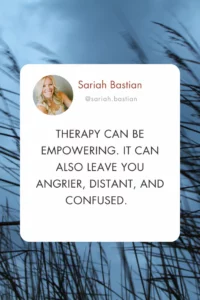
27 Feb Why Telling and Retelling Your Story After Infidelity Can Be Harmful
Does it seem as if your mind has been emptied of everything but the fact that your husband was unfaithful? Have you become an expert on timelines and now possess a magical memory for events? Perhaps a play-by-play relentlessly loops on the screen of your mind, and you wish the video would just stop playing. It’s driving you crazy and sucking the energy out of you, but you can’t seem to find the stop button. Sometimes, the story will lure you in, fueling your anger and giving you a false sense of power.
You want to scream from the rooftops. “My husband is a cheater!” You want to tell your mom, his mom, and the neighbor’s daughter’s boyfriend’s parents’ dog. You also want to sit in isolated silence, as you are afraid to speak the truth as others might judge you.
“What did you do to make him stray?”
“Why would you stay with a man who did this to you?”
“Leave him. Once a cheater, always a cheater.”
You don’t want to be judged, but you don’t want your family or friends judging him either. If you stay, you don’t want everybody to have a bad taste in their mouth about him.
Confessions To A Cashier

No day is really better than the next. As the story of his betrayal replays in your mind, spliced with scenes of the trauma you are now grappling with, words rise to the brim, insisting on being released. Sometimes the words break free, in what you hope is a constructive way, in the presence of your husband or therapist, and sometimes the words flee from your mouth only to impale the nearest bystander.
From first-hand experience, I understand the extreme desire to tell your story after infidelity. Before I even had proof of any actual infidelity, the use of certain troubling words and actions made my home life feel strange and very uncomfortable, and I felt disconnected from my husband. I would spill to my coworkers the conversations I had had the night before word-for-word. I was seeking validation, understanding, and their opinion on what to do. I wanted to know from them if I was crazy and if my suspicions were baseless. Once I actually found concrete evidence of what he was doing, I found myself at a loss for what to do with this information.
It was during my weaker moments that I would spew words about what I now knew and how I felt to my mom or my dearest friend. Afterward, I would feel ashamed and embarrassed for speaking about my husband in the ways that I had. The information I had shared about him was too private. Would my listeners ever respect him or me again?
For the most part, I tried to hold strong, not tell a soul and put on a fake smile, but my story would slip out. I would be in the ice cream aisle and turn to the person standing next to me and explain that my husband was cheating on me, so I was cheating on him with Ben and Jerry’s. A sarcastic remark would even seep out to the cashier regarding my husband’s infidelity. Everywhere I went, the images swirled within me, and with every conversation, I had to fight the temptation to give my words free rein, especially when infidelity was already the topic. I had to resist my urge anytime someone asked me about my husband.
One Retelling Too Many

When I finally began therapy, at first it felt so good to allow my words to flow. I meticulously went through the timeline of my history, sometimes moment by moment, and was careful to be precise with my words. It was as if I thought sharing this detailed track record would somehow award me the title of Most Traumatized and Most Pained. It felt good to speak to somebody who I felt was on my side and understood.
After my therapy sessions, I felt empowered. For a short time, it was as if I could stand in my Peter Pan stance and declare that I was going to therapy. I was working on this marriage. I was getting help, but using it to scrutinize him. I was essentially always asking him the question, “What are you doing?” This was my ‘Holier Than Thou’ era. I was better than him.
Yet, by retelling the events of the previous seven days each week, I felt angrier, more irritable, distant, and unsure of what to do going forward. I was keeping all of those distressing images and conversations at the forefront of my mind. It wasn’t until I started my education in the field of psychobiology that I understood why telling and retelling your story can actually be harmful.

Peter Levine, the author of In An Unspoken Voice, says that just exposing a client to his or her traumatic memories and having the person relive them is at best unnecessary and at worst re-traumatizing. Due to a client’s emotional trauma, retelling the play-by-play of events can exacerbate the symptoms of post-traumatic stress disorder. These ‘re-tells’ can increase the likelihood of flashbacks and nightmares. As you again witness the images of your trauma, your stimulated amygdala raises your anxiety, which leads to poor focus and excessive worry. Victims of betrayal trauma will then fear that something is wrong again, which can lead them back down the road of searching for evidence. More stories follow, more talking, and more trauma and these individuals find themselves nowhere closer to healing themselves or their marriages.
Here’s the thing, I know how overwhelming it feels to battle the images, words, and sensations produced by the trauma of infidelity. By removing the words from your body by sharing them with someone else, you will experience a momentary reprieve. Think, however, of how many times you’ve now told your story. If the pain hasn’t been relieved by now, will one more retelling do it? With each retelling, the sensations invoked by the story will only re-trigger you and send you spiraling.
There is a way to tell your story after infidelity that can be extremely healing. First, however, the traits of your emotional trauma need to be cleared.
I’d love to hear from you. Tell me in the comments below how many times you’ve shared your story of betrayal with someone. This may have to be a guesstimate. Has telling your story offered any long-term, positive outcomes?
Are you a Beyond Breath Insider? You’ll gain exclusive content, learn of special giveaways and receive personal updates from me that I don’t share anywhere else. Become a Beyond Breath Insider by accessing my free guide in which I share how to rebuild trust and intimacy after your husband’s infidelity.
You’ve probably done a lot of talking by this point about what happened, and what happened to you is terrible and unfair. But now it’s time to take some action so that you can finally begin to heal. Start with my masterclass. I promise: you won’t be disappointed.




